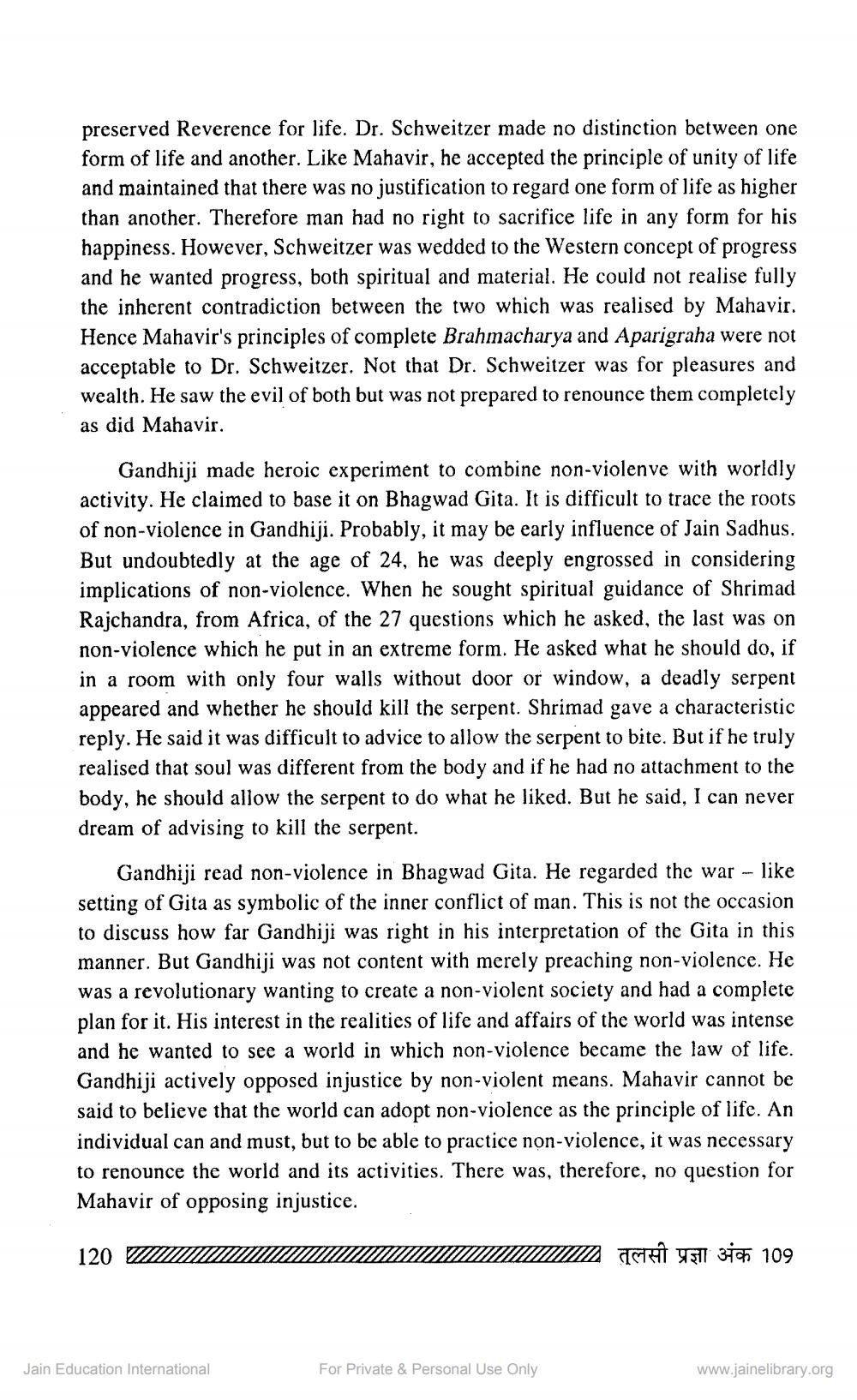________________
preserved Reverence for life. Dr. Schweitzer made no distinction between one form of life and another. Like Mahavir, he accepted the principle of unity of life and maintained that there was no justification to regard one form of life as higher than another. Therefore man had no right to sacrifice life in any form for his happiness. However, Schweitzer was wedded to the Western concept of progress and he wanted progress, both spiritual and material. He could not realise fully the inherent contradiction between the two which was realised by Mahavir. Hence Mahavir's principles of complete Brahmacharya and Aparigraha were not acceptable to Dr. Schweitzer. Not that Dr. Schweitzer was for pleasures and wealth. He saw the evil of both but was not prepared to renounce them completely as did Mahavir.
Gandhiji made heroic experiment to combine non-violenve with worldly activity. He claimed to base it on Bhagwad Gita. It is difficult to trace the roots of non-violence in Gandhiji. Probably, it may be early influence of Jain Sadhus. But undoubtedly at the age of 24, he was deeply engrossed in considering implications of non-violence. When he sought spiritual guidance of Shrimad Rajchandra, from Africa, of the 27 questions which he asked, the last was on non-violence which he put in an extreme form. He asked what he should do, if in a room with only four walls without door or window, a deadly serpent appeared and whether he should kill the serpent. Shrimad gave a characteristic reply. He said it was difficult to advice to allow the serpent to bite. But if he truly realised that soul was different from the body and if he had no attachment to the body, he should allow the serpent to do what he liked. But he said, I can never dream of advising to kill the serpent.
Gandhiji read non-violence in Bhagwad Gita. He regarded the war – like setting of Gita as symbolic of the inner conflict of man. This is not the occasion to discuss how far Gandhiji was right in his interpretation of the Gita in this manner. But Gandhiji was not content with merely preaching non-violence. He was a revolutionary wanting to create a non-violent society and had a complete plan for it. His interest in the realities of life and affairs of the world was intense and he wanted to see a world in which non-violence became the law of life. Gandhiji actively opposed injustice by non-violent means. Mahavir cannot be said to believe that the world can adopt non-violence as the principle of life. An individual can and must, but to be able to practice non-violence, it was necessary to renounce the world and its activities. There was, therefore, no question for Mahavir of opposing injustice.
120 W
IN
THAT 4511 31
109
Jain Education International
For Private & Personal Use Only
www.jainelibrary.org




